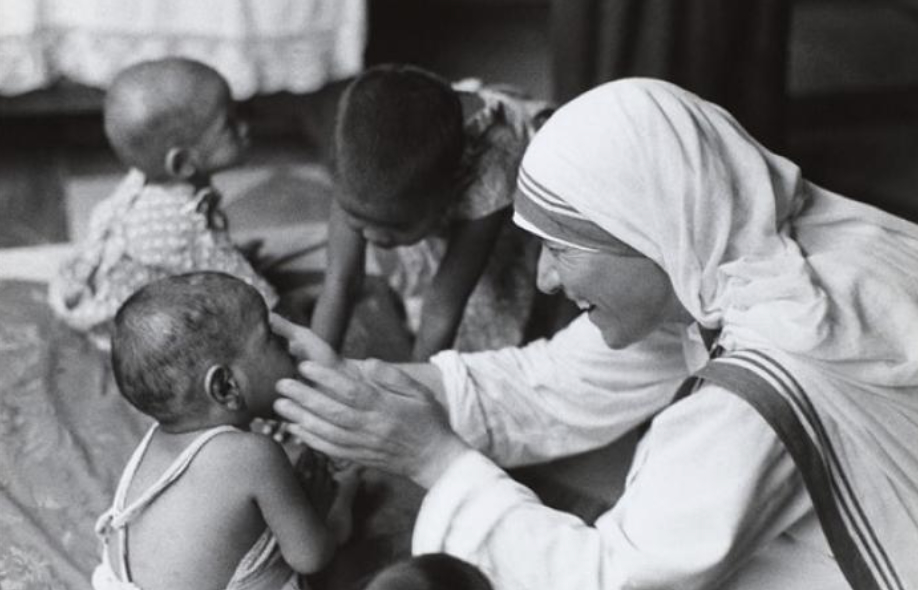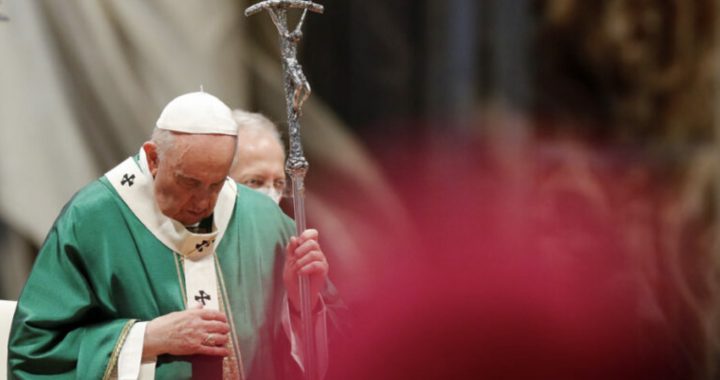With the Holy Spirit in charge at Assembly of Bishops, the fallen will not be forgotten
After a month recuperating at home from surgery to my legs, I decided to get off my haunches today and do some cycling, the only exercise my doctors permit as it does not entail standing up too much.
A short time after I started, my bike grazed the bicycle of a lady and sent me tumbling on a path. Fortunately, I was wearing a helmet that prevented any head injury that could have been serious.
As I laid on the ground, I waved my hand in protest at the lady. She got off from her bike, scolded me for my carelessness and went off, without attempting to help me up. Perhaps she was right that it was my fault, but I thought she could at least help me get up, even if she did not know I have a medical condition.
Instead, an old man who was passing by extended his hand to me, enquired if I was all right, dusted dirt off my clothing and picked my bike up. He advised me to check if the bike was not damaged before I got on it to continue my journey. I thanked him for his kindness.
On reflection, I wondered how many of us were either one of the three in different circumstances in our lives. How many times did we think others who fell were at fault and berated them for being down, not considering if they had fallen because they were wounded people? I will be the first to concede I have been guilty of this.
The bigger question, though, is: how often have we been like the old man, who offered a hand to a fallen human being to get a person get back on his or her feet again and didn’t care if that individual was at fault?
The Synod and the three Gospel parables
As I pondered these questions, my thoughts turn to the ongoing Synod in Rome, where among other things the Assembly of Bishops, other clergy, religious men and women, and laity, are also discerning about people living on the Church’s fringes, even outside of Her.
Unfortunately, there are Catholics, including at the top of the hierarchy, who pay only lip service to aid the fallen and wounded and have spoken out against this Synod.
In my thoughts, three instructive Gospel narratives come to mind where Jesus Christ teaches about the boundless Mercy of God and condemns the rigidity of the Laws of Moses the Pharisees forced upon the Jews, but not upon themselves.
Read: The Name of God is Mercy
These Gospel stories were about such fallen people, who in their day, were also excluded in the life of the Jews and forbidden to participate in their religious rites.
The disadvantaged people in Christ’s parables all happened to be women: prostitutes, divorced women whose husbands could end marriages but not them, and those considered physically unclean. The affected women could not but accept their fate.
Christ’s answer to such rigidity is summed up in Matthew 19:8-9 when the Pharisees questioned Him why Moses permitted men to divorce their wives. In excoriating them He says, “Moses permitted you to divorce because your hearts are so hard and stubborn, but originally there was no such thing.”
In Luke 7:36-50 Simon the Pharisee was given a lesson in God’s mercy when he wondered if Christ was really a prophet in allowing a tearful woman, a known sinner, to anoint His head and feet with expensive perfume.
Christ, who was invited to Simon’s home for a meal, answered His host with a parable:
“A certain creditor had two debtors; one owed five hundred denarii, and the other fifty. When they could not pay, he forgave them both. Now which of them will love him more?” The Pharisee answered, “The one, I suppose, to whom he forgave more.” And Christ said to him, “You have answered correctly.”
To a haemorrhaging woman who pushed through a crowd to touch His garment and was healed, Christ, in His compassion, tells her, “Daughter, your faith has made you well; go in peace, and be healed of your disease.” (Mark 5:25-34)

Christ the Alpha and Omega at the Assembly
In his opening remarks on the first day of the Synod, Pope Francis reminds the Assembly that “The protagonist of the Synod isn’t us, but the Holy Spirit,” emphasising that He is the protagonist of Church life” that “leads the Church forth,” is “maternal” and “guides us by the hand and consoles us.” He adds that if the Spirit is in charge, it is a good synod, and if He is not, “it is not”.
Reinforcing the Holy Father’s words, Coptic Catholic Patriarch Ibrahim Isaac Sedrak of Alexandria, Egypt, adds the Holy Spirit makes Christ present at the Synod. He emphasises how the Lord continues to show His love for the Church and has inspired the Synod.
“Let the centrality of Christ therefore be the guiding thread of this synod. Let Him be the Alpha and Omega of our discussions, let him be the light that illuminates our debates, let him be the final put of all our efforts. I am praying so the synod will succeed in achieving His own goals.”
If Pope Francis and Patriarch Ibrahim are right – and why shouldn’t they be – then every Catholic must submit to Christ’s actions in the Synod. He is Our Lord, isn’t He?
As it happened, a few notable Cardinals have chosen to throw doubts over the Assembly and not a few supposedly “faithful” Catholic media have done the same. Their actions have caused many Catholics, especially in the Western sphere, to speak and write about the Synod in negative tones.
Their approach to the Synod seems at odds with Christ’s promise to be with His Church till the end of time (Matthew 28:20) and that the Holy Spirit will guide Her to all truth (John 16:13). Do they not take Christ’s promise seriously or worse lost faith in Him? Only each one of them, respectively, can answer this question truthfully.
Pope Francis has explained what the Synod is and isn’t. Quoting St John Chrysostom he says, “the ‘Church and Synod are synonymous’, inasmuch as the Church is nothing other than the ‘journeying together’ of God’s flock along the paths of history towards the encounter with Christ the Lord, then we understand too that, within the Church, no one can be ‘raised up’ higher than others. On the contrary, in the Church, it is necessary that each person ‘lowers’ himself or herself, so as to serve our brothers and sisters along the way.”
(“Church” means both gathering [systema] and synod [synodos]’ – St John Chrysostom, Explicatio in Ps 149 ([PG 55, 493])
The poorest and those excluded from the Church
In 2019, two years before the Synod began, the International Theological Commission studied synodality in the life and mission of the Church and in paragraph 108 stated:
It is worth remembering these dispositions: participation in the life of the Church centred on the Eucharist and the Sacrament of Reconciliation; listening to the Word of God in order to enter into a dialogue with it and put it into practice; following the Magisterium in its teachings on faith and morals; the awareness of being members of each other as the Body of Christ and of being sent to our brothers and sisters, first and foremost to the poorest and the most excluded.

In his homily for the Solemn Mass at the opening of the Synod, Pope Francis reiterates this point, saying, “We do not need purely natural vision, made up of human strategies, political calculations, or ideological battles. We are here to walk together with the gaze of Jesus, Who blesses the Father and welcomes those who are weary and oppressed.”
The poorest and the most excluded among us in the Church are whom Pope Francis has taken a special interest in since the start of his pontificate 10 years ago. They will be foremost in the minds of those at the Assembly because they are mentioned prominently in all the continents’ final documents (Read Asia’s submission).
As the Synod takes every step in Rome, what each of us needs to ask of ourselves is who we are in this important juncture in the life of the Church.
Are we like the old man in the start of this commentary who, like the good Samaritan (Luke 10:25-37) did not judge the wounded and fallen stranger, and instead offered aid and made sure the man was well taken care of? Or are we like the priest and Levite who chose to walk away and let the man die?
It is an important question we need to answer.
